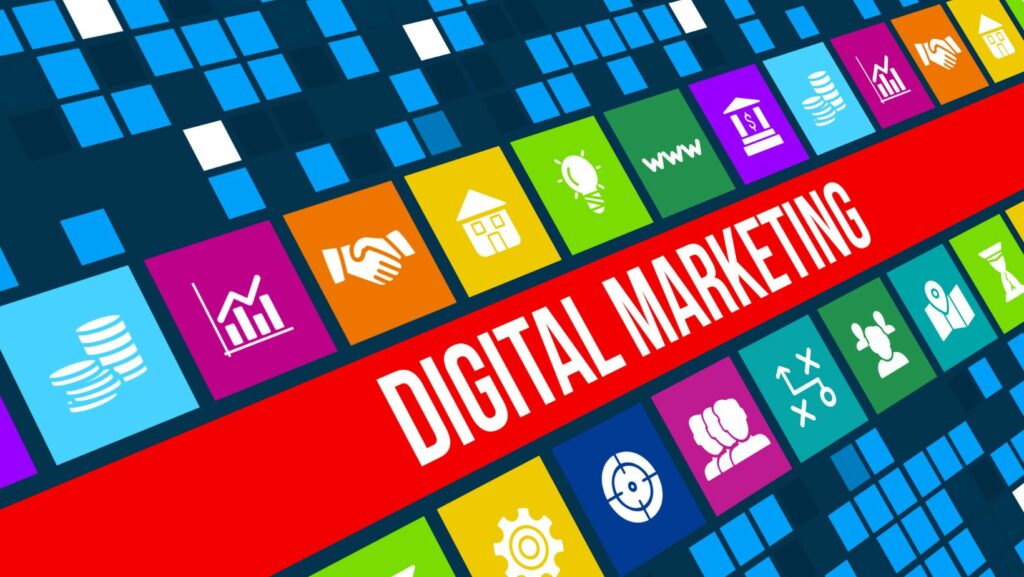Industrial Digital Marketing
- Embrace Digital Transformation: Industrial digital marketing is essential for modern businesses, moving beyond traditional methods to leverage online strategies for better audience connection and engagement.
- Data-Driven Insights: Utilizing data analytics helps companies understand customer behavior and market trends, enabling them to optimize marketing strategies for effective outreach.

- Content is King: Creating valuable, targeted content—such as whitepapers and case studies—positions companies as industry leaders and nurtures client relationships.
- Optimize for Search: Effective SEO practices boost visibility in search engine results, attracting qualified leads and enhancing overall brand awareness.
- Social Media Engagement: Active presence on platforms like LinkedIn and Twitter facilitates real-time interaction with industry professionals, fostering trust and loyalty.
- Navigate Challenges: Understanding industry-specific regulations and adapting to technology advancements is crucial for sustaining competitive growth in industrial digital marketing.
In today’s fast-paced industrial landscape, digital marketing has emerged as a game changer. Companies are no longer relying solely on traditional marketing methods; instead, they’re harnessing the power of digital tools to connect with their audience more effectively. With the right strategies, businesses can enhance their visibility, engage potential clients, and drive sales in ways that were previously unimaginable.
Industrial digital marketing isn’t just about promoting products; it’s about creating meaningful relationships within a niche market. By leveraging data analytics, targeted content, and social media, organizations can tailor their approach to meet the unique needs of their customers. As the industry evolves, understanding these digital strategies becomes essential for staying competitive and achieving sustainable growth.
Overview Of Industrial Digital Marketing
Industrial digital marketing involves using online tools and strategies to engage with targeted audiences in the industrial sector. Companies leverage digital platforms to reach clients effectively, fostering relationships and driving sales growth.
Key components include:
- Data Analytics: Analyzing data helps identify customer behavior and market trends. Insights guide marketing strategies and optimize outreach efforts.
- Content Marketing: Creating valuable, targeted content can position companies as industry leaders. Technical articles, whitepapers, and case studies inform and attract potential clients looking for expertise.
- Social Media Marketing: Platforms like LinkedIn and Twitter offer opportunities to connect with professionals in the industry. Regular updates and interaction facilitate relationship-building.
- Search Engine Optimization (SEO): Optimizing online content improves visibility in search engine results. Effective SEO strategies enhance organic traffic, increasing the likelihood of attracting qualified leads.
- Email Marketing: Personalized emails can nurture leads and keep potential clients informed about products and industry news. Automation tools streamline campaigns for effective communication.
Industrial digital marketing not only enhances brand visibility but also drives conversions, ensuring companies remain competitive in a dynamic marketplace. Engaging content and strategic outreach are essential for achieving sustainable growth in this sector.
Importance Of Industrial Digital Marketing
Industrial digital marketing plays a pivotal role in enhancing business operations and maximizing growth potential. By leveraging digital strategies, companies can streamline their marketing efforts, engage effectively with their target audience, and drive tangible results.
Increased Reach And Visibility
Increased reach and visibility stand as paramount benefits of industrial digital marketing. Digital platforms enable companies to connect with a wider audience across geographic boundaries. By employing search engine optimization (SEO) techniques, businesses can enhance their rankings on search engines, making it easier for potential customers to discover their products and services. Utilizing targeted advertising on platforms like Google Ads and social media allows firms to direct their messaging towards specific demographics, ensuring that marketing efforts reach the right users at the right time. A well-executed digital strategy can significantly elevate brand awareness and attract quality leads.
Enhanced Customer Engagement
Enhanced customer engagement emerges as another critical aspect of industrial digital marketing. Companies can build stronger relationships with their audiences through social media platforms, allowing for real-time interaction and feedback. This immediacy fosters trust and rapport, encouraging customer loyalty. Additionally, content marketing plays a vital role in providing valuable insights that resonate with industry professionals. By sharing informative articles, videos, and webinars, businesses position themselves as thought leaders, nurturing stronger connections with their audience. Implementing email marketing campaigns also fosters ongoing dialog, keeping customers informed and engaged with product updates, industry news, and promotional offers.
Key Strategies In Industrial Digital Marketing
Effective strategies in industrial digital marketing focus on targeted approaches that leverage technology and analytics for optimal results. This section outlines essential tactics that drive engagement and growth in the industrial sector.
Content Marketing
Content marketing establishes authority and builds trust within the industrial landscape. Companies create white papers, case studies, and blog posts that provide in-depth insights and solutions to industry challenges. Offering valuable information showcases expertise and positions businesses as thought leaders. Regularly updating content helps maintain visibility and relevance in search rankings. Additionally, incorporating visual elements such as infographics or videos enhances the user experience, facilitating better understanding and retention of complex information.
Search Engine Optimization (SEO)
SEO enhances online visibility and attracts qualified leads. Companies optimize their websites for relevant industrial keywords, ensuring their content ranks high in search engine results. Utilizing tools like Google Analytics provides insights into customer behavior and preferences. Companies track and analyze metrics such as organic traffic and bounce rates to refine their SEO tactics continually. Implementing local SEO strategies helps businesses capture nearby markets, essential for those with physical locations or regional services. Consistent optimization of site structure, meta tags, and alt text improves overall accessibility and user experience.
Social Media Marketing
Social media marketing connects companies with their audience and industry influencers. Platforms such as LinkedIn, Twitter, and Facebook facilitate professional networking and knowledge sharing. Regularly posting updates, industry news, and engaging content cultivates a strong online presence. Companies can leverage targeted advertising options to reach niche audiences based on industry, location, and interests. Participating in discussions and responding to comments fosters community engagement and enhances brand loyalty. Analytics tools help measure the effectiveness of social media campaigns, providing data to inform future strategies and improve return on investment.
Tools And Technologies For Industrial Digital Marketing
Industrial digital marketing relies on various tools and technologies that enhance efficiency and effectiveness. These resources streamline processes and empower companies to make data-driven decisions.
Marketing Automation
Marketing automation simplifies repetitive tasks, allowing marketers to focus on strategic initiatives. Tools like HubSpot and Marketo enable companies to automate email campaigns, social media posting, and lead nurturing. Automation fosters personalized communication based on customer behavior, improving engagement rates and conversion metrics. By segmenting audiences, businesses can tailor content to specific needs and interests, resulting in higher ROI from marketing efforts.
Analytics Tools
Analytics tools provide insights into customer behavior, campaign performance, and overall marketing effectiveness. Platforms such as Google Analytics and Tableau help organizations track website traffic, user engagement, and conversion rates. These tools facilitate data visualization, making it easier to identify trends and areas for improvement. By leveraging analytics, companies can adjust marketing strategies in real-time, ensuring alignment with audience expectations and maximizing resources.
Challenges In Industrial Digital Marketing
Industrial digital marketing faces several significant challenges that companies must navigate to succeed in an evolving landscape. Understanding these obstacles enhances strategic responses and improves overall marketing effectiveness.
Industry-Specific Regulations
Compliance with industry-specific regulations introduces complexities in digital marketing. Companies in sectors such as manufacturing, pharmaceuticals, and energy often deal with stringent regulations governing advertising and communication. Adherence to guidelines from organizations like the Federal Trade Commission (FTC) or the Occupational Safety and Health Administration (OSHA) is vital. Failure to comply can result in severe penalties and damage to reputation. Hence, businesses need to invest in training and resources to ensure adherence to these regulations, which can consume valuable time and financial resources.
Technology Adaptation
 Rapid technological advancements pose adaptation challenges for industrial companies. Businesses must continually update their tools and platforms to meet evolving customer expectations. For instance, staying current with new data analytics tools, CRM systems, and marketing automation technologies is essential for competitiveness. Resistance to change or insufficient training can hinder digital marketing efforts and result in lost opportunities. Therefore, commitment to ongoing education and technology investments is crucial for leveraging tools that drive engagement and conversions.
Rapid technological advancements pose adaptation challenges for industrial companies. Businesses must continually update their tools and platforms to meet evolving customer expectations. For instance, staying current with new data analytics tools, CRM systems, and marketing automation technologies is essential for competitiveness. Resistance to change or insufficient training can hinder digital marketing efforts and result in lost opportunities. Therefore, commitment to ongoing education and technology investments is crucial for leveraging tools that drive engagement and conversions.
Essential for Success
Embracing industrial digital marketing is no longer optional; it’s essential for success. Companies that leverage digital tools and strategies can significantly enhance their reach and engagement. By utilizing data analytics and targeted content, they can build lasting relationships with their audience.
The integration of social media and SEO into marketing efforts not only increases visibility but also fosters trust and loyalty among customers. As industries evolve, staying ahead of technological advancements and adapting strategies will be crucial.
Investing in the right tools and ongoing education will empower businesses to navigate challenges and seize opportunities. Ultimately, a well-executed digital marketing strategy can drive conversions and ensure a competitive edge in today’s dynamic marketplace.



